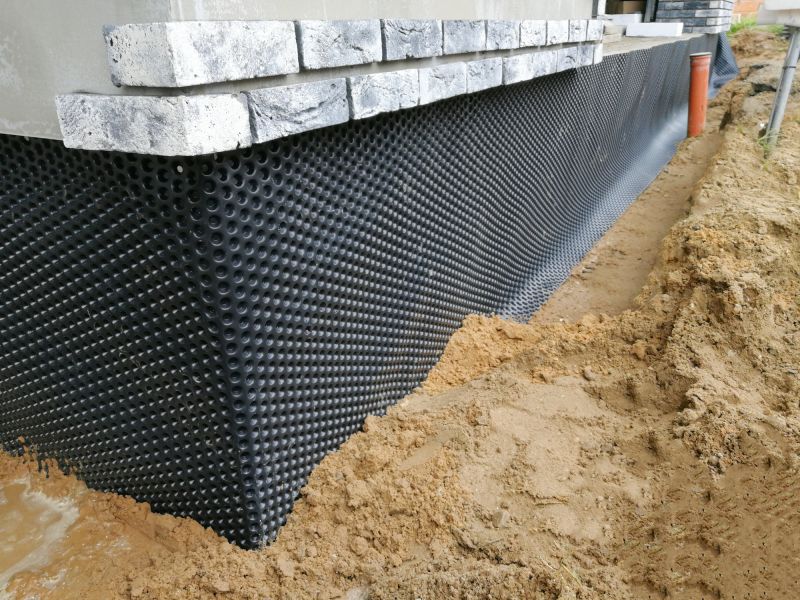Top Waterproofing Products for Long-Lasting Protection
Discover the most effective waterproofing solutions designed to safeguard structures from moisture and water damage.
 Waterproofing products play a crucial role in protecting structures, foundations, and surfaces from water intrusion and damage. Whether you're working on a basement, roof, or outdoor surface, selecting the right waterproofing solution can help prevent leaks, moisture buildup, and structural deterioration. The variety of products available includes liquid membranes, sealants, coatings, membranes, and tapes, each suited for different applications and surfaces. Proper application and choosing the appropriate product are essential for achieving effective waterproofing results.
Waterproofing products play a crucial role in protecting structures, foundations, and surfaces from water intrusion and damage. Whether you're working on a basement, roof, or outdoor surface, selecting the right waterproofing solution can help prevent leaks, moisture buildup, and structural deterioration. The variety of products available includes liquid membranes, sealants, coatings, membranes, and tapes, each suited for different applications and surfaces. Proper application and choosing the appropriate product are essential for achieving effective waterproofing results.
Top Overall Option
Liquid Waterproofing Membrane
A versatile liquid membrane offers seamless coverage and can be applied to a variety of surfaces, including roofs, foundations, and balconies. Its ease of application and ability to form a continuous, flexible barrier makes it a popular choice for many waterproofing projects. When properly applied, it can accommodate surface movement and help prevent water ingress effectively.
Types of Products For Waterproofings
Liquid Waterproofing Membranes
Flexible, seamless coatings that can be brushed, rolled, or sprayed onto surfaces for a durable waterproof layer.
Bituminous Coatings
Asphalt-based coatings suitable for roofs and basements, offering good adhesion and water resistance.
Polyurethane Coatings
High-performance coatings known for their elasticity and strong adhesion, ideal for roofs and decks.
Rubberized Sealants
Flexible sealants used to fill cracks and joints, providing an effective water barrier.
Waterproofing Tapes
Self-adhesive tapes designed to seal joints, cracks, and seams in various surfaces.
Cementitious Waterproof Coatings
Ready-mixed cement-based coatings suitable for basement walls and concrete surfaces.
Sheet Membranes
Pre-formed sheets made from rubber, bitumen, or PVC that are adhered to surfaces for waterproofing.
Crystalline Waterproofing
Chemical treatments that penetrate concrete and form a waterproof crystalline structure within the material.
Spray-On Waterproof Coatings
Fast-application coatings that can be sprayed onto large surfaces for quick waterproofing coverage.
Elastomeric Coatings
Thick, flexible coatings that expand and contract with the surface, suitable for roofs and walls.
Polymer Modified Bitumen
Enhanced asphalt membranes with added polymers for increased flexibility and durability.
Waterproofing Paints
Specialized paints that create a water-resistant barrier on walls and surfaces.
Drainage Boards
Protective layers that facilitate water drainage away from structures, often used in foundation waterproofing.
Hydrophobic Coatings
Products that repel water and prevent moisture penetration on various surfaces.
Vapor Barriers
Materials designed to prevent moisture vapor transmission, often used in basements and crawl spaces.
Popular Choices
Widely used for their seamless application and adaptability to various surfaces.
Commonly selected for roof and foundation waterproofing due to their proven performance.
Favored for their elasticity and strong adherence in high-movement areas.
Popular for sealing cracks and joints in concrete and masonry surfaces.
Preferred for large-scale projects requiring durable, pre-fabricated waterproof layers.
Chosen for concrete structures to enhance internal water resistance.
Ideal for quick, large-area applications on roofs and decks.
Often used on roofs and exterior walls for their flexibility and weather resistance.
Simple application for walls and surfaces requiring a water-resistant finish.
Effective in foundation waterproofing to direct water away from structures.
Popular for their water-repelling properties on various building surfaces.
In residential settings, waterproofing is often necessary around basements, bathrooms, and balconies. For commercial or industrial projects, more robust solutions like membrane systems and liquid coatings may be preferred due to their durability and coverage capabilities. Additionally, weather conditions, surface type, and specific project requirements influence the choice of waterproofing materials. It is important to consider the compatibility of products with existing surfaces and their ability to withstand environmental factors such as UV exposure, temperature fluctuations, and foot traffic.
Maintaining a waterproof barrier can extend the lifespan of buildings and outdoor structures, reducing the need for costly repairs in the future. Proper surface preparation and application techniques are vital to ensure the longevity and effectiveness of waterproofing products. Consulting with professionals or thoroughly researching product specifications can help in selecting the most suitable solutions for your specific needs in Ringgold, GA, or elsewhere. With a wide range of options available, homeowners and contractors alike can find products tailored to their unique waterproofing challenges.
Key Buying Considerations
- Identify the specific area or surface requiring waterproofing to select the most suitable product.
- Consider the compatibility of the waterproofing material with existing surfaces such as concrete, wood, or metal.
- Evaluate the environmental conditions, including exposure to UV rays, temperature changes, and foot traffic.
- Determine whether a liquid, sheet, or sealant approach best fits your project needs.
- Check for ease of application, including tools required and surface preparation steps.
- Assess the durability and lifespan of the product under local weather conditions.
- Review the drying and curing times to plan your project timeline effectively.
- Consider whether the product is suitable for interior or exterior use, or both.
- Verify if the product is designed to accommodate surface movement or structural shifts.
- Ensure the waterproofing solution complies with relevant building codes and standards.
- Think about maintenance requirements and ease of reapplication if needed.
- Look into the product’s resistance to chemicals, mold, or algae if applicable.
- Evaluate cost-effectiveness based on coverage area and longevity.
- Read customer reviews and expert recommendations for insights into real-world performance.
- Consult with professionals if uncertain about the best product for your specific application.
